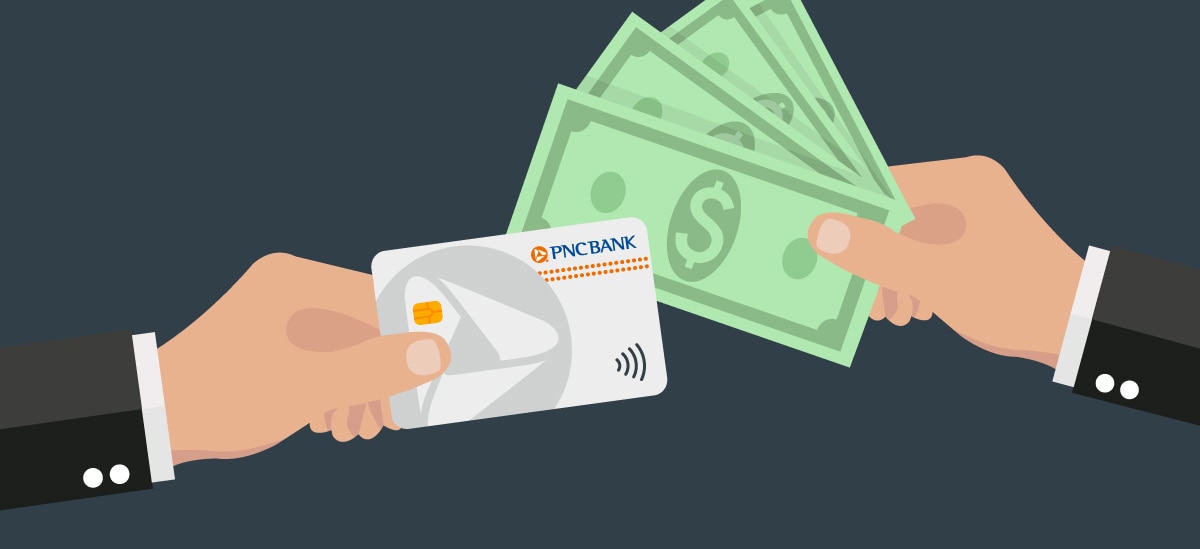Money is a general term for anything that can be used as a medium of exchange, store of value and unit of account. Currency, on the other hand, is a specific type of money that represents a country’s medium of exchange, including banknotes and coins.
Money and currency are two closely related concepts, but there are distinct differences between them. While money refers to any object or token that is commonly accepted for the exchange of goods and services, currency is the official form of money used in a particular country.
Currency includes banknotes and coins that are legal tender in the country where they are issued. Other types of money, such as checks, credit cards and electronic transfers, are not considered currency. Understanding the differences between money and currency helps individuals and businesses make better financial decisions.

Credit: www.pnc.com
Table of Contents
Defining Money And Currency
Money and currency are often used interchangeably, but they’re not the same. Money is a store of value, unit of account, and medium of exchange. It’s anything that’s widely accepted as payment for goods and services, such as dollars, euros, or pounds.
A currency, on the other hand, is a specific type of money that’s issued by a government or central bank. It’s only legal tender within a particular country’s boundaries, and its value is backed by the government’s ability to honor debts.
While money can be traded on global markets, currency is subject to fluctuations based on domestic economic factors. It’s important to distinguish between these two terms to understand how they function in the global economy.
Differences Between Money And Currency
Money and currency are often used interchangeably, but they have significant differences. Legal definitions vary, as money is an official medium of exchange recognized under government authority. Currency, on the other hand, is a type of money used in a particular country or region.
Regulations for creating and controlling money vastly differ from currency. Money is monitored by central banks that manipulate the money supply and interest rates, while currency has its authority. While both serve as a means of exchange, currency tends to be more limited in its usages.
Money has universal acceptance, but currency may only be accepted in specific regions or countries. It is essential to know these differences to make wise financial decisions.
Advantages And Disadvantages Of Money And Currency
Money and currency are often used interchangeably, but they have some key differences. Advantages of using money include its universal acceptance, making transactions easier and more efficient. However, the use of money can also lead to consumerism and a focus on material goods rather than essential needs.
On the other hand, advantages of using currency, such as digital payment systems, include increased convenience and accessibility. But, currency also opens avenues for cyber fraud and online scams. To sum it up, it’s important to understand the differences between money and currency to make informed choices about how we handle our finances.
Evolution Of Money And Currency
Money and currency are often used interchangeably, but they have distinct differences. In the past, money used to be physical items like gold or silver, whereas currency is a paper or digital representation of money. Historically, people exchanged products, services, and even livestock in lieu of money.
But with the evolution of economies around the world, currencies were adopted to ease transactions. Countries also began to print their own currency that serves as a legal tender. In today’s world, economic stability could significantly impact the value of your currency and the purchasing power of your money.
There’s no doubt that digital currency will continue to grow in popularity, and could even replace physical money in the future. While money and currency may seem interchangeable, understanding their differences is essential to financial literacy.
FAQs
What Is The Difference Between Money And Currency?
Money is a medium of exchange and a store of value while currency is a form of money that includes paper and coins.
How Is Currency Different From Commodity Money?
Commodity money is a physical good that has value, whereas currency is a promise to pay and has value because the government says it does.
Can Currency Ever Become Worthless?
Yes. Currency can become worthless if the government printing it becomes too much or if people lose trust in the currency.
Why Do Some Countries Use Other Countries’ Currencies?
Countries can use another country’s currency if their own currency is unstable or they want stability in trade and investment.
How Is Digital Currency Different From Physical Currency?
Digital currency is a type of currency that is not physical while physical currency is a paper bill or coin.
Is Cryptocurrency A Type Of Currency?
Yes. Cryptocurrency is a type of digital currency and is decentralized, meaning there is no central authority governing its value.
What Should You Use As A Store Of Value: Money Or Currency?
Money is the best store of value because it appreciates while currency loses value due to inflation.
Conclusion
It is clear that there is a significant difference between money and currency. Money is a universal medium of exchange that maintains value over time, while currency is simply a current form of money that represents its value. Although they are often used interchangeably, it is important to remember that not all money is currency, and not all currency is money.
Understanding the distinction between the two is essential in comprehending how the global financial system functions and how it impacts our daily lives. As individuals and businesses alike, it is important to be mindful of how we handle each, and the implications of our financial decisions.
By recognizing the difference between money and currency, we can make informed choices that will lead to financial stability, growth, and success.
